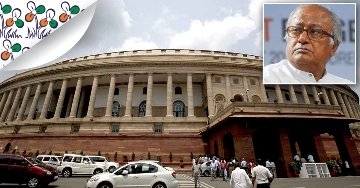Full Transcript
I thank the Minister for making the effort to bring this Bill. This is an example of how government work piles up and multiplies. Every Act that we pass in Parliament has to be printed in the central laws book. Not only does the government publish central law books but also private publishers publish central law books. Uselessly these Appropriation Acts are included.
Madam, as you know, no government can spend money out of the Consolidated Fund of India unless it is appropriated by a proper an Appropriation Act. The validation of the Appropriation Act is only for one year. At the end of the financial year the Appropriation Act ends.
Over the years there are four appropriations taken in the House. If you recollect Ma’am, one is the Vote-on-Account Appropriation. The second is the actual Appropriation. Then there is Railway Vote-on-Account Appropriation. Then there is the Railway Appropriation Bill. So, four appropriations are being done per year.
From 1950 all these appropriations are there in the Statute books and the thick central laws book that is published. Nobody cared to repeal them before. In 1998 there was a committee to study government functioning. They recommended that all this should be abolished or repealed. Then the Law Commission also said these laws must be repealed. A Standing Committee of the Rajya Sabha went into the mater. They recommended that there should be an automatic repeal clause at the end of the Appropriation Act.
Now, we have studied in the objects and reasons that the Minister has mentioned about Australia and UK. Australia has an automatic repeal clause. It’s a Commonwealth country. UK repeals them in parts from time to time. So far we are following the UK method in which we shall repeal clauses.
Many states come under the President’s rule. Up to 1976, before the 42nd amendment, the budgets of the states under President’s rule had also to be appropriated in the Parliament as a result of which those were also added. So, altogether there are 758 such Appropriation Acts out of which 11 are related to State Appropriation Acts.
Now we are going to repeal all this at one go. The Minister has earlier also taken some initiative in repealing outdated laws. You see the Indian Penal Code is from 1860. All our laws are from British era. There are Police Acts and hundreds of Acts which have become redundant. A study should be made or the Law Commission report should be sought for and these useless Acts should be repealed from our Statute books.
Ultimately Madam, the laws have to go online. If you go to a lawyer’s chamber he asks you for fees depending on how many law books are there in his chamber. There is no necessity for this. All the laws can go online. Anybody can have access without buying these costly law books.
I would like the Minister to simplify our laws; simplify the law making procedure and simplify the whole system so that the common man need not interact with the legal system through lawyers only. For simple laws the common man should know his rights.
I am glad that the Law Minister has started this initiative. I think in the coming days this archaic language of the laws would be done away with. Modern language should be brought in and all useless laws should be repealed from the statute books.
With these wprds, I support the Bill.

